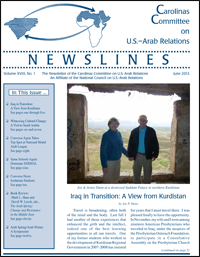Qatar expels Lebanese after GCC Hezbollah decision
Source: Khaleej Times (Read full story)
At least 18 Lebanese citizens have been expelled from Qatar, a government source in Beirut said on Thursday, after the Gulf Cooperation Council pledged to act against members of Lebanon’s Hezbollah movement. “Eighteen Lebanese have been expelled from Qatar, in the wake of the GCC decision,” the source said on condition of anonymity, saying it was not clear if they were Hezbollah members. On June 10, the GCC, to which Qatar belongs, said it would implement measures affecting the “residency permits and financial and commercial transactions of Hezbollah” in response to the group’s involvement in the conflict in Syria.
…

 The
The 
You must be logged in to post a comment.